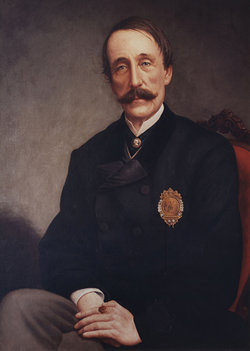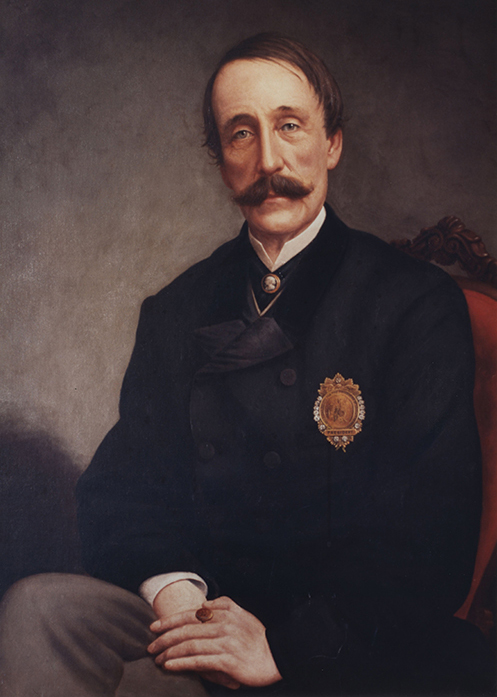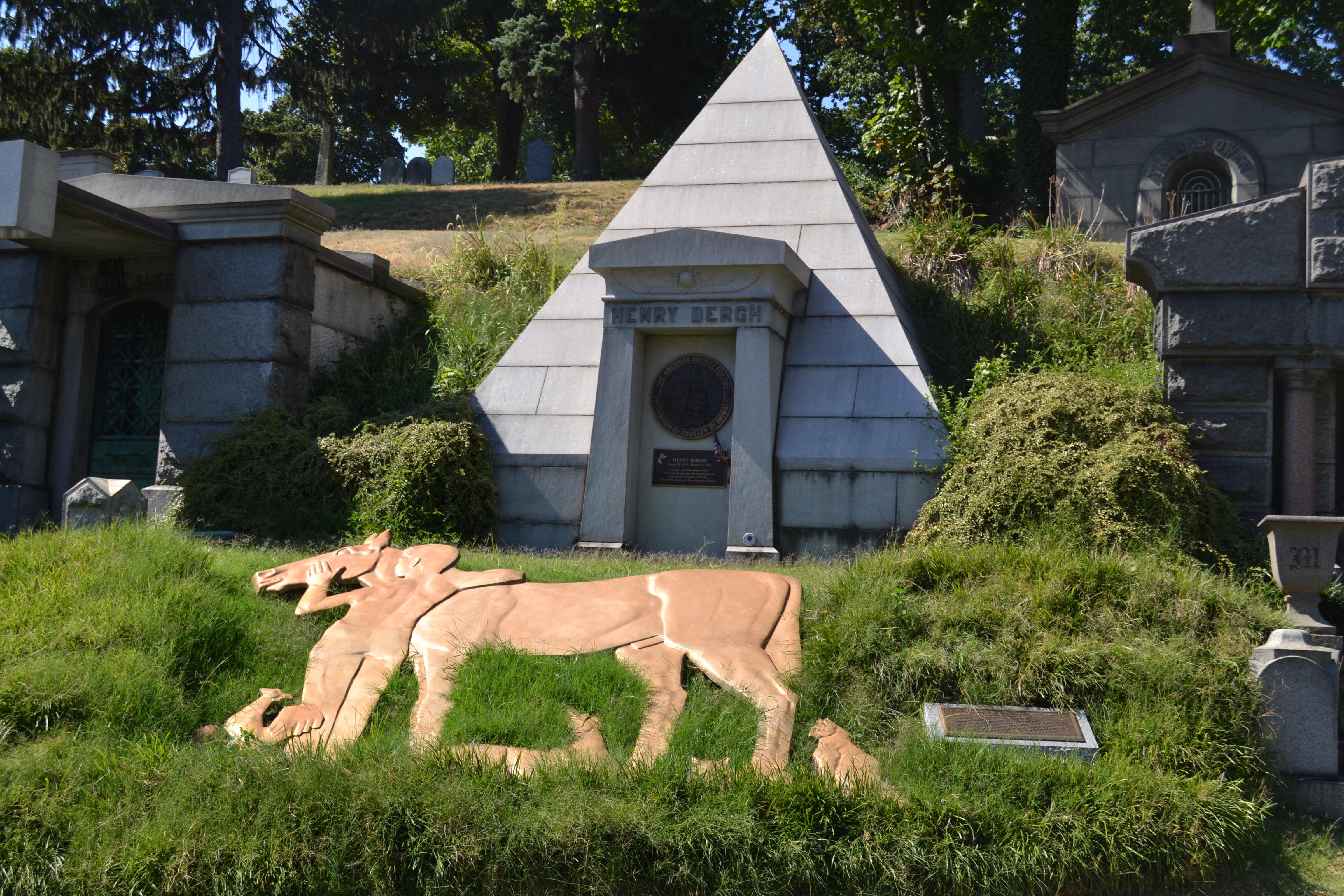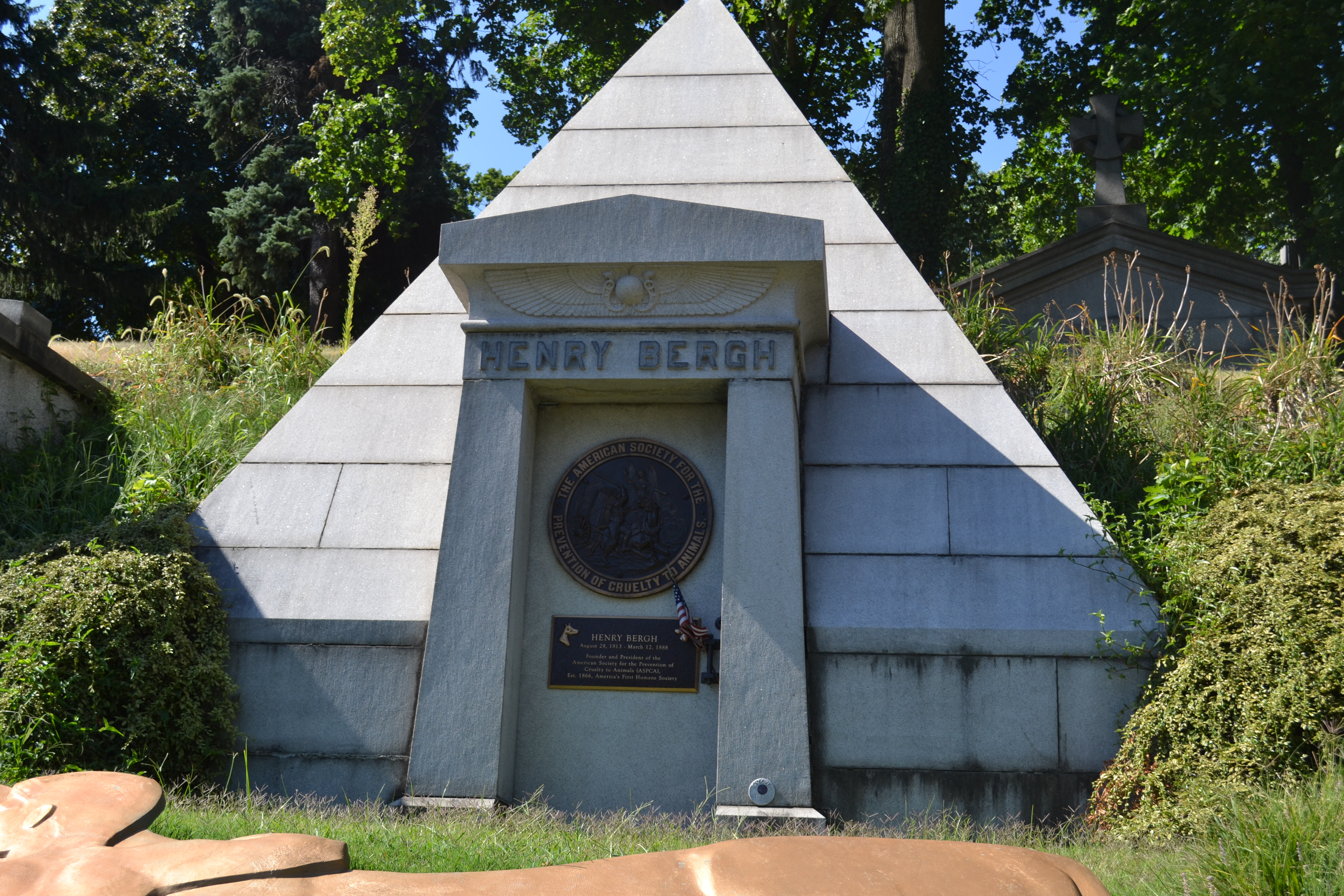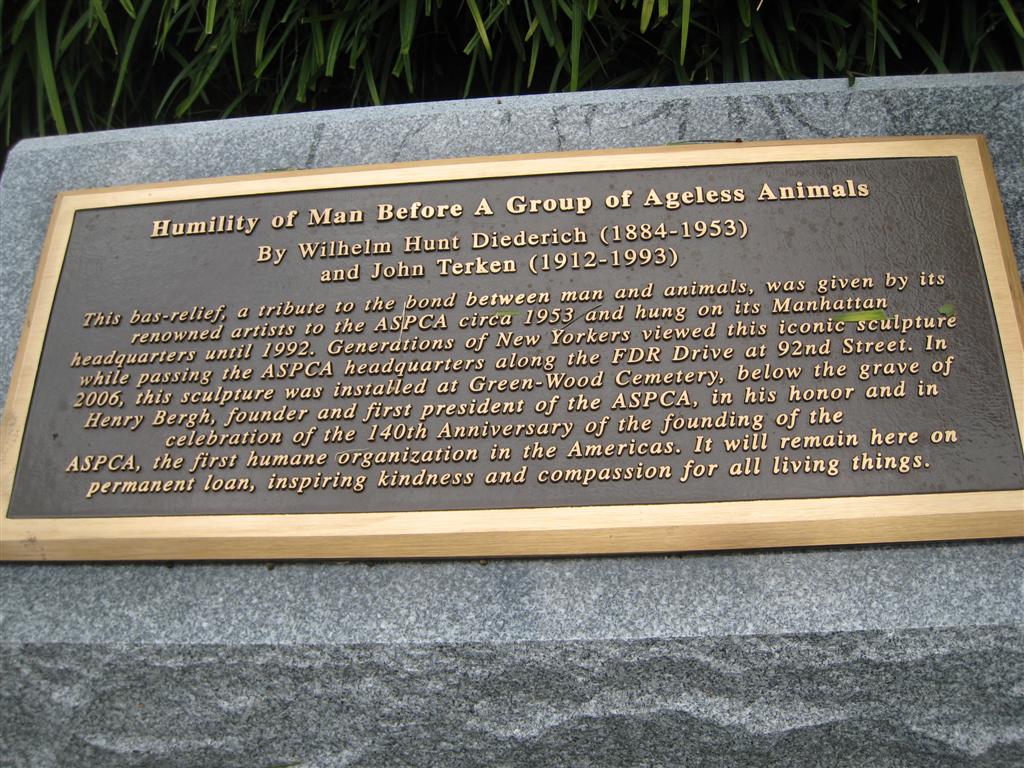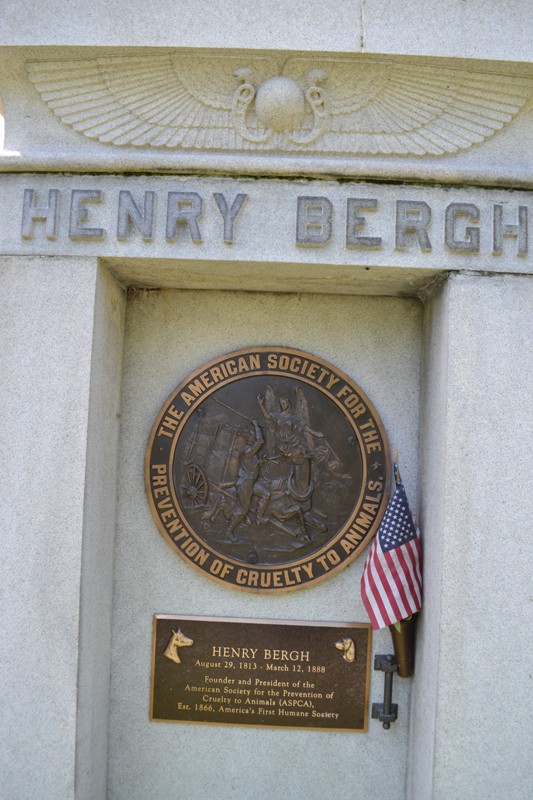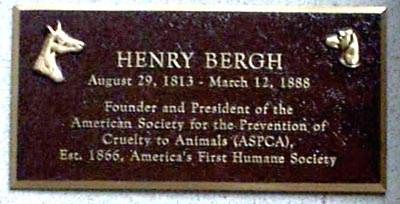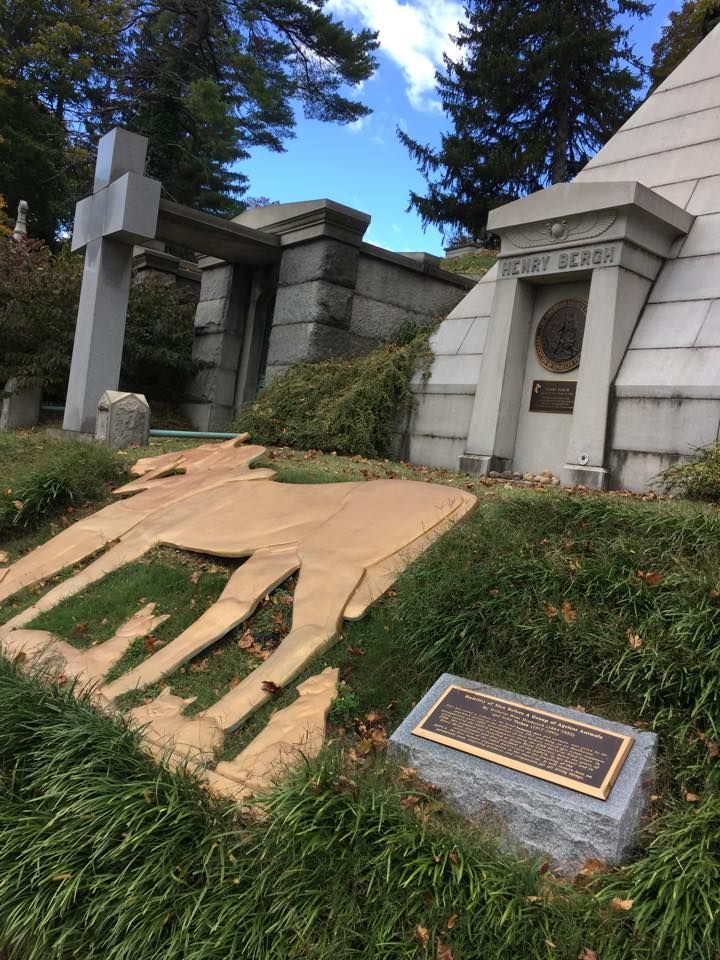Social Reformer, US Diplomat. Born in New York to wealthy ship builder Christian and Elizabeth Bergh. Henry would study at Columbia College. He and his brother Edwin would run his father's shipyard business until his father died, then they sold the business and split the inheritance three ways with their sister Jane. Henry would take his new bride Catherine Matilda Taylor for a trip around the world. In 1862, Henry was appointed secretary and acting vice-consul to the American legation in St. Petersburg, Russia by then President Abraham Lincoln. It was there that he was horrified to witness work horses beaten by their peasant drivers. He would resign in 1864, and he traveled extensively in Europe and the Orient. Before returning to America in 1865, Henry would visit with visit the Royal Society for the Prevention of Cruelty to Animals in London and it would awaken his determination to secure a charter not only to incorporate the ASPCA but to exercise the power to arrest and prosecute violators of the law. Alone, in the face of indifference, opposition, and ridicule, he began working as a speaker and lecturer, but most of all in the street and the courtroom, and before the legislature. His cause gained friends and rapidly increased in influence. The legislature passed the laws prepared by him, and in April 1866 the ASPCA was legally organized, with Henry as president. When Henry began his work, no state or territory of the United States contained any statute relating to the protection of animals from cruelty. By 1886, 39 states had adopted substantially the original laws procured by him from the legislature of New York. Henry was known to physically and verbally intervene when he spotted a case of animal abuse. A prolific writer, Bergh penned countless letters to those he felt were involved in mishandling animals as well as individuals supporting the ASPCA. The organization published annual reports beginning in 1867, wherein details were provided regarding the progress being made as well as the criminals who were convicted. He was the recipient of death threats, physical attacks, and public ridicule. Henry's dramatic street rescues of mistreated horses and livestock served as a model for those trying to protect abused children. After Mary Ellen McCormack, 9, was found tied to a bed and brutally beaten by her foster parents in 1874, activists founded the New York Society for the Prevention of Cruelty to Children. Henry served as one of the group's first vice presidents. Elbridge T. Gerry, lawyer to the SPCA, later took over the SPCC and made great advances for the cause of child welfare. Over the coming years, other SPCC organizations were formed, such as the Massachusetts organization in 1888, the Massachusetts Society for the Prevention of Cruelty to Children. Poet Henry Wadsworth Longfellow eulogized Henry as "among the noblest in the land...friend to every friendless beast." Henry died in his home at seventy-four years old during the great blizzard of 1888. Today, the ASPCA is one of the largest humane societies in the world and is a national animal welfare organization with over one million supporters across the country. The ASPCA continues its mission "to provide effective means for the prevention of cruelty to animals throughout the United States," as Henry Bergh had always intended it to be.
Social Reformer, US Diplomat. Born in New York to wealthy ship builder Christian and Elizabeth Bergh. Henry would study at Columbia College. He and his brother Edwin would run his father's shipyard business until his father died, then they sold the business and split the inheritance three ways with their sister Jane. Henry would take his new bride Catherine Matilda Taylor for a trip around the world. In 1862, Henry was appointed secretary and acting vice-consul to the American legation in St. Petersburg, Russia by then President Abraham Lincoln. It was there that he was horrified to witness work horses beaten by their peasant drivers. He would resign in 1864, and he traveled extensively in Europe and the Orient. Before returning to America in 1865, Henry would visit with visit the Royal Society for the Prevention of Cruelty to Animals in London and it would awaken his determination to secure a charter not only to incorporate the ASPCA but to exercise the power to arrest and prosecute violators of the law. Alone, in the face of indifference, opposition, and ridicule, he began working as a speaker and lecturer, but most of all in the street and the courtroom, and before the legislature. His cause gained friends and rapidly increased in influence. The legislature passed the laws prepared by him, and in April 1866 the ASPCA was legally organized, with Henry as president. When Henry began his work, no state or territory of the United States contained any statute relating to the protection of animals from cruelty. By 1886, 39 states had adopted substantially the original laws procured by him from the legislature of New York. Henry was known to physically and verbally intervene when he spotted a case of animal abuse. A prolific writer, Bergh penned countless letters to those he felt were involved in mishandling animals as well as individuals supporting the ASPCA. The organization published annual reports beginning in 1867, wherein details were provided regarding the progress being made as well as the criminals who were convicted. He was the recipient of death threats, physical attacks, and public ridicule. Henry's dramatic street rescues of mistreated horses and livestock served as a model for those trying to protect abused children. After Mary Ellen McCormack, 9, was found tied to a bed and brutally beaten by her foster parents in 1874, activists founded the New York Society for the Prevention of Cruelty to Children. Henry served as one of the group's first vice presidents. Elbridge T. Gerry, lawyer to the SPCA, later took over the SPCC and made great advances for the cause of child welfare. Over the coming years, other SPCC organizations were formed, such as the Massachusetts organization in 1888, the Massachusetts Society for the Prevention of Cruelty to Children. Poet Henry Wadsworth Longfellow eulogized Henry as "among the noblest in the land...friend to every friendless beast." Henry died in his home at seventy-four years old during the great blizzard of 1888. Today, the ASPCA is one of the largest humane societies in the world and is a national animal welfare organization with over one million supporters across the country. The ASPCA continues its mission "to provide effective means for the prevention of cruelty to animals throughout the United States," as Henry Bergh had always intended it to be.
Bio by: Memorial Flower
Family Members
Advertisement
See more Bergh memorials in:
Records on Ancestry
Sponsored by Ancestry
Advertisement
